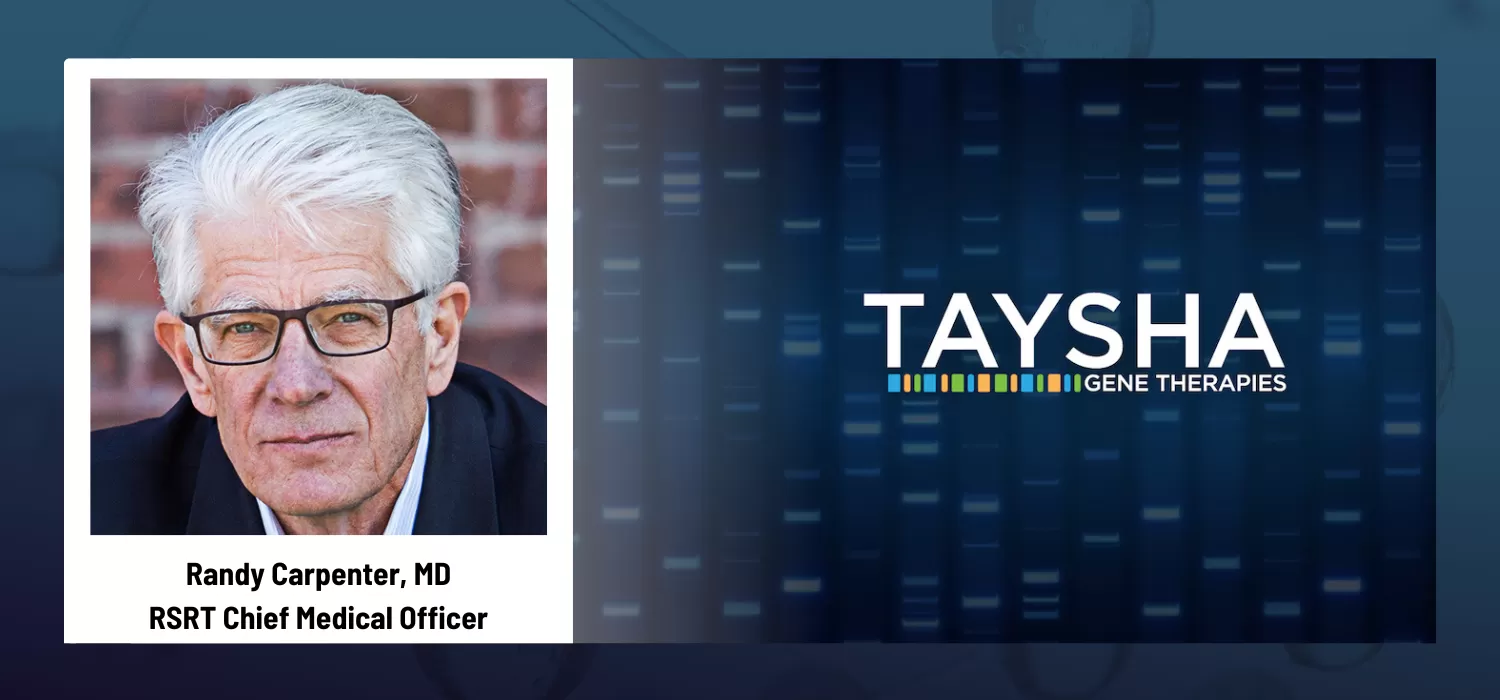What We Learned from Taysha’s Clinical Trial Community Update

In November Taysha Gene Therapies ushered the Rett community into a new era with the formal announcement that recruitment had begun for their gene replacement therapy trial. This is the first clinical trial with a therapeutic designed to correct the root cause of Rett syndrome!
When biopharmaceutical companies receive regulatory approval to begin recruitment for a clinical trial a summary protocol becomes available. A protocol is a written description of a clinical study that includes the study's objectives and design, including inclusion and exclusion criteria. A summary of the protocol for the Taysha trial is available online and is outlined in the community update video. Briefly, the initial study site is in Montreal, Canada, and the goal is to enroll up to 18 adult women with a clinical diagnosis of Rett syndrome and a confirmed MECP2 mutation.
RSRT has received a number of questions about the new information that Taysha shared in their recent community update video, and I thought I would share some answers and thoughts.
QUESTION: If my child is eligible, should I consider enrolling her in Taysha’s clinical trial?
ANSWER: Broadly speaking, the primary challenge when considering participation in a clinical trial is to determine whether the potential benefits outweigh the potential risks. There is no question that restoring functional MECP2 protein in the brain has the potential to provide profound benefit in function and quality of life for individuals with Rett syndrome. Furthermore, animal data suggests that restoring MECP2 in as little as 3% to 5% of brain cells may provide meaningful benefit.
However, we do not yet know whether efficacy observed in animals accurately predicts efficacy in humans. The actual benefit that each individual will obtain can only be defined through participation in clinical trials such as this one.
QUESTION: What might we learn from this clinical trial?
ANSWER: Taysha’s gene replacement program, TSHA-102, is made up of two main elements: the treatment “cargo” (the mini-gene) and the delivery “truck” (AAV9). AAV9 is a harmless viral vector that carries the cargo into cells. This trial may start to provide some clues about how well the truck delivers the cargo and how well the cargo works once it's delivered. Importantly, the trial will provide information about whether symptoms improve and, if so, when do they improve and by how much. These are obviously crucially important questions.
QUESTION: How safe will this clinical trial be?
ANSWER: The risks associated with administration of the delivery truck (AAV9) are well understood. AAV9 has been administered to thousands of people in clinical trials and those who receive Zolgensma for spinal muscular atrophy (SMA). The doses of AAV9 selected for this clinical trial are guided by these human safety data.
The safety and tolerability of the cargo have been assessed in animals and predicted to be safe for administration to humans. However, the absolute safety in humans can only be established by testing in clinical trials such as this one.
QUESTION: What new information was shared in Taysha’s community update video and from the trial protocol?
ANSWER: The video presentation by Taysha provides additional information regarding the study. An initial dose that is predicted to provide meaningful efficacy will be tested first. If this dose is safe and well tolerated, a higher dose may also be evaluated. To prioritize individual safety, study participants will be enrolled sequentially and safety confirmed in each participant before the next person is treated.
The trial will have two cohorts: A treatment cohort will receive the gene replacement upon randomization into the trial, and a delayed treatment cohort will receive the gene replacement after a time lag. The delayed treatment cohort will be monitored during the time between randomization and receiving treatment, and will act as a placebo control group. Patients will be randomized in the trial, meaning you can’t choose which cohort your child is in or what dose your child receives.
Although the initial site is in Montreal, Taysha will likely add more sites in the future. Multi-site trials allow for faster enrollment and allow for more robust data collection.
The protocol suggests that the goal is to establish a therapeutic safe dose within a year. Patients will be followed closely for between five and six years. However, there will be data readouts earlier than that, and the company may decide to conduct further trials in parallel.
QUESTION: What else should I consider when deciding to enroll my child in this or any future clinical trial?
ANSWER: Participating in this trial will require significant commitment from the family because the trial requires many in-person medical visits and the follow-up time period is lengthy. Families will need to live close to the study center or be willing to relocate for a four- or five-month period. Current enrollees must be 18 or older, although Taysha plans to conduct a pediatric trial as soon as possible and subsequently a trial in boys with MECP2 mutations.
It’s also very important to remember that a clinical trial is an experiment, and informed participation requires thoughtful consideration. The design of this clinical trial incorporates insights from all available safety and efficacy data to optimize the potential benefit and minimize the potential risks for study participants. However, it is not currently possible to perfectly predict the benefits and/or risks associated with participation in this or any trial.
You can watch Taysha's video update on its Rett syndrome clinical trial here:
Questions about the clinical trial should be directed to Medical Information division at Taysha Gene Therapies: 833.489.8742 or medinfo@tayshagtx.com
I join Monica and my other RSRT colleagues in thanking our generous donors and the families that raise funds for us. Without you, RSRT would not have been able to champion gene replacement as an exciting potential treatment avenue. This clinical trial is the result of your generosity and commitment to RSRT.
Wishing you all happy holidays and the very best for 2023!


